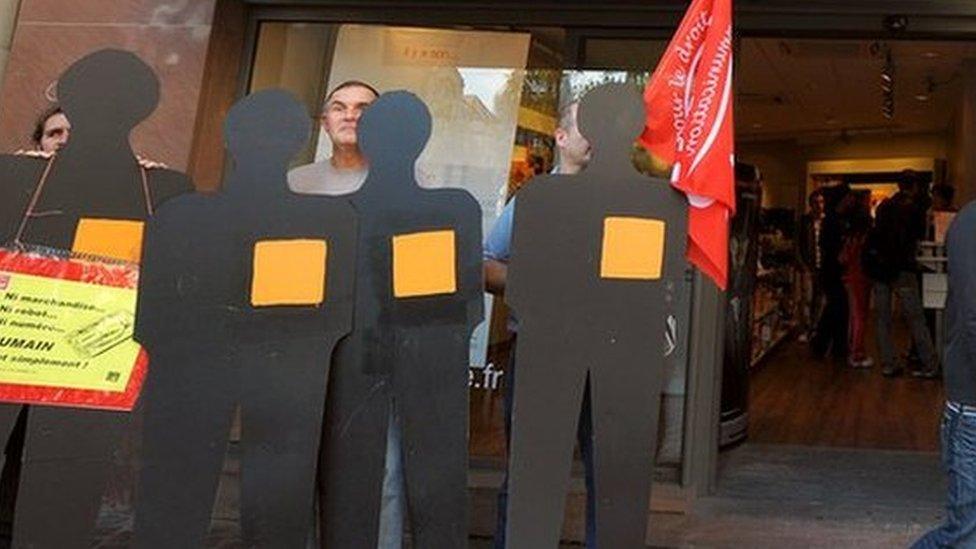French school bullying deaths stir intense debate
- Published
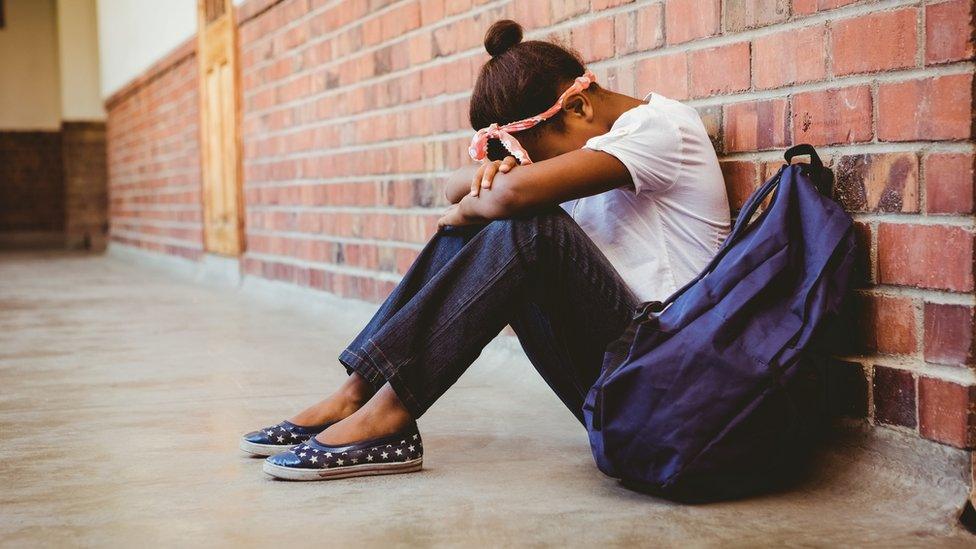
Two stories about two French girls who killed themselves after being bullied at school have prompted an emotional response and intense debate about how teenagers can be better protected.
Emilie, 17, took her life in January and a graphic account of the torment she suffered emerged this week when her diary appeared in a newspaper.
It was immediately followed by a French TV dramatisation of the story of Marion Fraisse, who died three years ago. The France 3 film was poignantly entitled Marion, 13 ans pour toujours - Marion, Forever 13.
The question for France is whether their deaths will help change the way bullying is tackled.

"You were moved by last night's story - for help and solutions go to bit.ly/Marion13ans"
It starts so gradually, you hardly notice it.
In a classroom of rowdy students, Marion is marked out as one of the good girls.
Over the course of the 90-minute drama, she loses her friends, is the victim of rumours, insults and isolation, and then is cornered by a group of boys in the corridor, who grab her, pin her down and throw her shoes away.
"She was asking for it," says a passing girl. Marion breaks down and cries. From there the drama follows her descent into desperation, depression, and finally suicide.
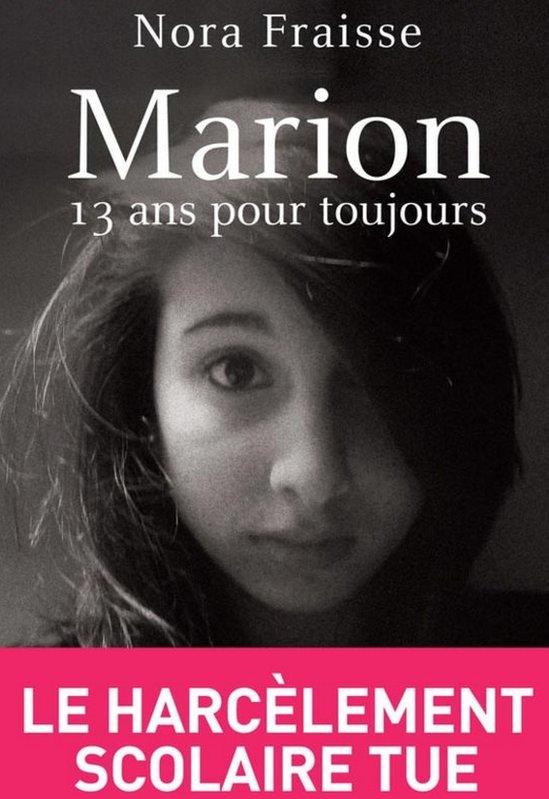
Nora Fraisse's book is subtitled School Bullying Kills
The film was adapted from a book by Marion's mother, Nora, who found a letter from the teenager after her death and decided to tell her story.
A poignant act, because one of the most striking elements of that story is how Marion's parents knew about what was happening to their daughter at the time.
Interviewed by a French newspaper, external to mark the launch of the dramatisation, actress Julie Gayet, who plays Nora, said the film had two points of view: Marion's and her mother's.
The script "shows that parents never really know their child. Half a child's life escapes them".
More than four million people tuned in to watch the drama, which was followed by a one-hour debate. Many took to social media afterwards to share their stories and express their anger.
"It's not a suicide, it's murder," wrote one Twitter user, called Sara. Another suggested that the film be shown in schools. Others wrote of their own experiences of bullying, with some saying the experience had haunted them for years after they had left full-time education.

All in front of Marion, Forever 13, film inspired by Marion's terrifying story. School bullying affects us all
Read more here:
How France has tried to address bullying
According to official figures, 700,000 pupils are bullied each year in France, and activists say more than 90% of children have access to social networks.
France has tried to improve awareness of bullying in schools, as well as support for the victims.
In 2014, a new anti-bullying law was brought in, and a hotline set up for pupils to report incidents. But activists say France is still not tackling the problem effectively.

A national anti-bullying helpline was introduced in 2014
"The authorities' response is improving very slowly," says psychologist and campaigner Catherine Verdier. "But France is dragging behind other countries. If you look at Finland, Sweden, where it's a national cause, there was a real impulse from the top to change things."
"A few schools have improved, but not enough," says Willy Pierre who runs 'You Are Heroes', set up after Marion's death to break the taboo around bullying. "The hotline is only open in school hours, and it can take weeks or months to find a designated adult for the child to talk to face to face."
The problem has also grown to encompass cyber-bullying and harassment outside the school gates. The solution, he says, is for parents, teachers and pupils to talk openly about the problem.
Emilie's story
Emilie was four years older than Marion when she died in January after jumping out of a window at her father's house.

Emilie's diary was published by La Voix du Nord this week, eight months after she died
A bright pupil at a private school in the northern city of Lille, Emilie's parents say she endured years of terror up to the age of 13 because she was not considered cool and trendy and loved reading.
Eventually she snapped and they pulled her out of the school. For three years she tried other schools and distance learning, but she developed a phobia of schools and her parents believe her death was linked to depression as a result of the bullying.

Excerpts from Emilie's diary
Dodging blows, being tripped up and spat at. Closing your ears to insults and mockery. Keeping an eye on your bag and your hair. Holding back the tears. Again and again
Hey, you know what? a boy exclaimed loud enough for everyone in the class to hear but the teacher. Apparently they're going to award a prize to the ugliest clever-clogs in every country. Oh yeah? his neighbour tittered. I bet you we've got the winner in the class
I don't want my parents to know how pathetic I am, and think they've given birth to a piece of crap
The diary was published in La Voix du Nord (in French), external

A report by Unicef two years ago found that bullying was a worldwide problem that "exists at some level and in some form in every country".
Children who are bullied, it says, are prone to a vast range of negative effects "including depression, anxiety, thoughts of suicide".
One mother told a French newspaper that her daughter's school had responded to the problem of bullying with "a conspiracy of silence".
But after days of debate about the sad lives of two French teenagers, those taboos may finally be crumbling.
Are you being bullied? Useful contacts
BullyingUK, external - Tel 0808 800 2222
Childline, external - Tel 0800 1111
Bullying at school, external - UK government website
Non au harcelement , external- French government website - Tel 3020
- Published13 May 2016
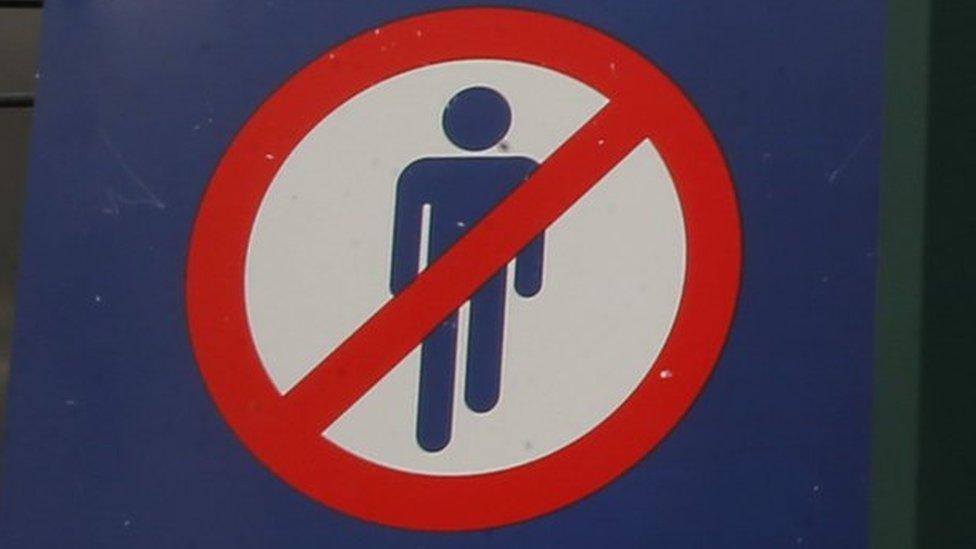
- Published26 May 2016
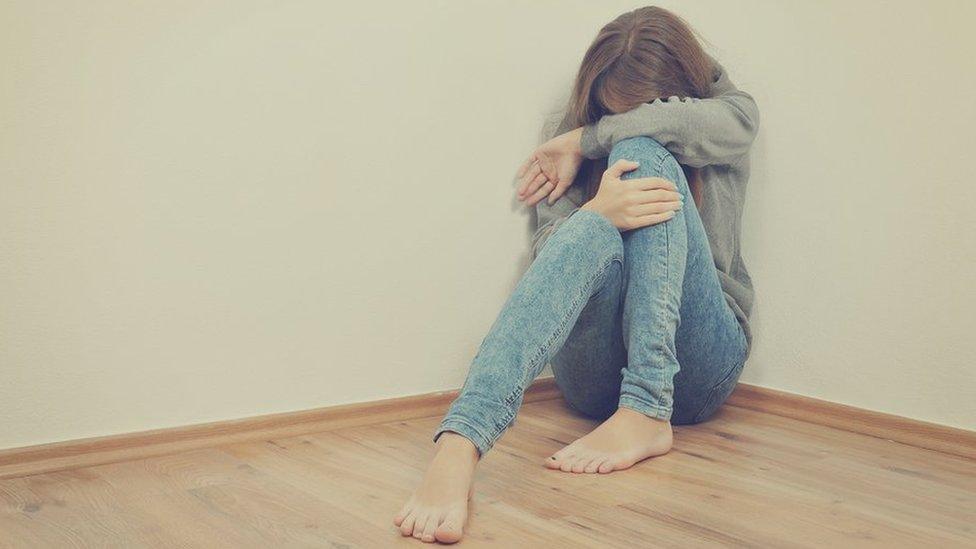
- Published19 August 2013
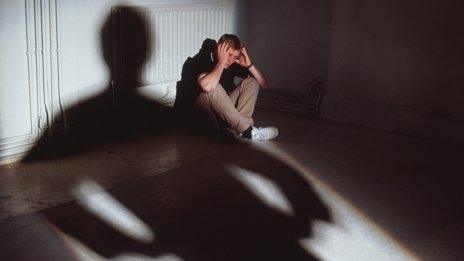
- Published7 July 2016
